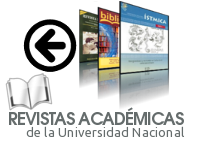Traditional games are recovered from generation to generation
DOI:
https://doi.org/10.15359/mhs.5-1.1Keywords:
traditional games, recreation, game, customs, traditionsAbstract
Communities, neighborhoods, and other environments are currently immersed in a series of situations and problems that have favored the deterioration of social, cultural and spiritual values, which are essential for harmony with oneself, others, and the environment. Stereotypes have captured minds and settings have been reduced to indoor spaces, hemmed in by security bars and protective devices. Peace, fraternity and happiness are diminishing. It is at this point that the social, spiritual and professional work of specialists in the recreational field contributes to rescue and restructure society. Traditional games and singing games are then the tools used to facilitate relationships, contribute to the learning process, and exhibit skills. They are fundamental in a person’s life since they are a social and cultural expression of how humans have adapted to their environment (Maestro, 2005). They do not take ethnicity, age, sex or social conditions into consideration. Traditional games are also a way of promoting health, improving motor, cognitive and emotional skills and a means of encouraging creativity and imagination and developing a sense of rhythm. Their goal is to attain a state of personal well-being. They are a way to release tension and accumulated energy and to get away from the daily routine. They represent a bridge to learn about oneself, the environment, values, habits, and traditions. In this document, readers will learn how traditional games are transmitted, what their characteristics are, why they are an important tool in today’s society, how they are prepared, and how they can be revived and preserved.References
Bantulá, J y Mora, J. (2002). Juegos multiculturales: 225 juegos tradicionales para un mundo global. Barcelona: PAIDOTRIBO.
Bustos, M., Carrión, M., García, J., Guzmán, J., Irigoyen, A., Larraya, I., López, J., Maestro, F., Martínez, F., Maseda, J., Muriel, J., Ruiz, M., Sánchez, J., Valle, R., Velásquez, C. y Zoroza, A. (1999). Juegos: una propuesta práctica populares para la escuela. España: Pila Teleña.
González, A. (2000). Tin Marín ¡a jugar! San José, Costa Rica: EUNED.
Hernández, M. (1987). Juegos tradicionales costarricenses. Costa Rica: Talleres gráficos de Offiprint Industrial S.A.
Lavega, P.y Olaso, S. (1999). 1000 Juegos y Deportes populares y tradicionales: tradición jugada. Barcelona: PAIDOTRIBO.
Maestro, F. (2005). Juegos tradicionales. España.
Sisfontes, P. (1999). Juegos y Rondas. Documento en la Biblioteca Clemencia Conejo. Escuela Ciencias del Deporte, Universidad Nacional.
Ramírez, O. (1993). Al rescate de las rondas y los juegos tradicionales. Costa Rica: Impresos Costa Rica 2000.
Downloads
Published
How to Cite
Issue
Section
License
General conditions
MHSalud: Journal in Human Movement Sciences and Health by the Universidad Nacional is cover under a Creative Commons Atribución-NoComercial-SinDerivadas 3.0 Costa Rica license.
The journal is hosted in open access repositories such as the Institutional Repository of the Universidad Nacional, the Kimuk Repository of Costa Rica and La Referencia.
The editorial source of the journal must be recognized. Use the doi identifier for this purpose.
Self-archiving policy: The journal allows the self-archiving of the articles in their peer-reviewed version, edited and approved by the Editorial Board of the Journal to be available in Open Access through the Internet. More information in the following link: https://v2.sherpa.ac.uk/id/publication/25815



















